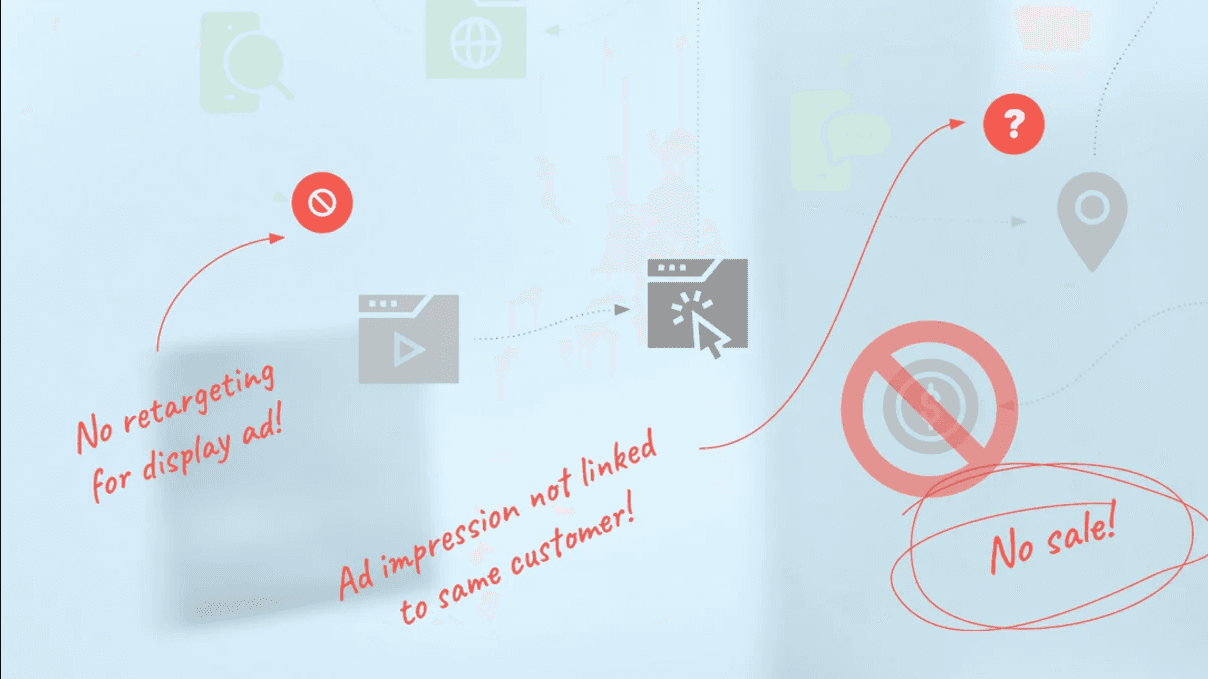

How to Navigate Cookie Deprecation: Strategies for Comprehensive User Insights - Part 1
Learn the strategies to overcome third-party cookie deprecation.

Monika Boldak
Associate Director, Data Solutions
In the evolving landscape of digital marketing, the impending deprecation of third-party cookies presents a significant challenge. However, amidst these changes, businesses can leverage alternative strategies to maintain comprehensive user insights and understand customer behavior more effectively.
Embracing Data Import Strategies:
User Data Import:
This involves uploading offline or external data about users into Google Analytics. In a cookie-less landscape, where tracking might be limited, importing user data allows for a more comprehensive understanding of user behavior by combining online and offline data sources.
Consider a retail company facing limitations in tracking online interactions due to cookie restrictions. To bridge this gap, they employ data import techniques by integrating offline data—such as in-store purchases or loyalty program information—into their analytics platform. This fusion of online and offline behavior offers a holistic view of customer preferences, ensuring a more personalized experience.
Item Data Import:
Similar to user data, this feature allows the importing of offline or external data related to specific items or products. This can be highly valuable in understanding user preferences and behavior concerning specific products or services.
An e-commerce platform affected by cookie deprecation integrates offline data related to specific products customers interacted with in physical stores. This approach empowers the platform to offer tailored recommendations based on an encompassing understanding of customer preferences across channels.
Cost and Offline Data Import:
Importing cost data involves integrating external cost-related information (ad spend, marketing expenses) into analytics platforms. This allows for a more accurate assessment of the performance of different campaigns and channels.
For marketers navigating the challenges of attributing online conversions post-cookie deprecation, importing external cost-related data—advertising spend or campaign expenses—provides valuable insights. Additionally, integrating offline data like in-person transactions into analytics helps fill the void left by limited online tracking, ensuring a comprehensive overview of user interactions.
Sustaining Tracking Continuity:
Consistent Cross-Device Tracking:
In the absence of third-party cookies, consistent cross-device tracking becomes challenging. However, methods like User ID or other login-based tracking mechanisms can help maintain consistency in tracking user behavior across devices.
Services like streaming platforms employ User ID systems, enabling seamless syncing of preferences and history across multiple devices. This ensures a consistent experience without solely relying on cookies.
Cross-Domain Linking:
Cross-domain linking allows tracking user behavior across different domains owned by the same entity. Understanding user journeys spanning multiple domains becomes crucial post-cookie deprecation. Implementing cross-domain linking strategies allows platforms to track user progression across various sites, providing valuable insights into how different domains influence user behavior and engagement.
Conclusion:
In conclusion, the landscape of digital marketing is rapidly evolving, urging businesses to adapt to these changes in tracking and user data collection. By embracing data import strategies and ensuring continuity in tracking methods without relying solely on cookies, businesses can continue to understand user behavior effectively.
Adapting to these changes isn't merely a response to cookie deprecation; it's an opportunity to foster a more personalized and insightful approach to user interactions across digital platforms.
Curious if any of the above solutions will work for you in the post-cookie world? Visit our Talk to Us page to get in-touch about the above strategies and custom-designed solutions.
More Insights


How to Audit Google Analytics 4 (GA4): Common Issues and Their Impacts on Your Data

Hasan Alanam
Manager, Data Solutions
Feb 14, 2025
Read More


Cookie Compliance Explained: Key Privacy Laws and Best Practices for Websites

Rob English
Lead Product Specialist
Feb 12, 2025
Read More


Impact of Consent Mode on Reporting and Transaction Data in GA4

Trisha Patel
Senior Analyst, Data Solutions
Feb 5, 2025
Read More
More Insights
Sign Up For Our Newsletter

Napkyn Inc.
204-78 George Street, Ottawa, Ontario, K1N 5W1, Canada
Napkyn US
6 East 32nd Street, 9th Floor, New York, NY 10016, USA
212-247-0800 | info@napkyn.com

How to Navigate Cookie Deprecation: Strategies for Comprehensive User Insights - Part 1
Learn the strategies to overcome third-party cookie deprecation.

Monika Boldak
Associate Director, Data Solutions
In the evolving landscape of digital marketing, the impending deprecation of third-party cookies presents a significant challenge. However, amidst these changes, businesses can leverage alternative strategies to maintain comprehensive user insights and understand customer behavior more effectively.
Embracing Data Import Strategies:
User Data Import:
This involves uploading offline or external data about users into Google Analytics. In a cookie-less landscape, where tracking might be limited, importing user data allows for a more comprehensive understanding of user behavior by combining online and offline data sources.
Consider a retail company facing limitations in tracking online interactions due to cookie restrictions. To bridge this gap, they employ data import techniques by integrating offline data—such as in-store purchases or loyalty program information—into their analytics platform. This fusion of online and offline behavior offers a holistic view of customer preferences, ensuring a more personalized experience.
Item Data Import:
Similar to user data, this feature allows the importing of offline or external data related to specific items or products. This can be highly valuable in understanding user preferences and behavior concerning specific products or services.
An e-commerce platform affected by cookie deprecation integrates offline data related to specific products customers interacted with in physical stores. This approach empowers the platform to offer tailored recommendations based on an encompassing understanding of customer preferences across channels.
Cost and Offline Data Import:
Importing cost data involves integrating external cost-related information (ad spend, marketing expenses) into analytics platforms. This allows for a more accurate assessment of the performance of different campaigns and channels.
For marketers navigating the challenges of attributing online conversions post-cookie deprecation, importing external cost-related data—advertising spend or campaign expenses—provides valuable insights. Additionally, integrating offline data like in-person transactions into analytics helps fill the void left by limited online tracking, ensuring a comprehensive overview of user interactions.
Sustaining Tracking Continuity:
Consistent Cross-Device Tracking:
In the absence of third-party cookies, consistent cross-device tracking becomes challenging. However, methods like User ID or other login-based tracking mechanisms can help maintain consistency in tracking user behavior across devices.
Services like streaming platforms employ User ID systems, enabling seamless syncing of preferences and history across multiple devices. This ensures a consistent experience without solely relying on cookies.
Cross-Domain Linking:
Cross-domain linking allows tracking user behavior across different domains owned by the same entity. Understanding user journeys spanning multiple domains becomes crucial post-cookie deprecation. Implementing cross-domain linking strategies allows platforms to track user progression across various sites, providing valuable insights into how different domains influence user behavior and engagement.
Conclusion:
In conclusion, the landscape of digital marketing is rapidly evolving, urging businesses to adapt to these changes in tracking and user data collection. By embracing data import strategies and ensuring continuity in tracking methods without relying solely on cookies, businesses can continue to understand user behavior effectively.
Adapting to these changes isn't merely a response to cookie deprecation; it's an opportunity to foster a more personalized and insightful approach to user interactions across digital platforms.
Curious if any of the above solutions will work for you in the post-cookie world? Visit our Talk to Us page to get in-touch about the above strategies and custom-designed solutions.
More Insights

Consent Mode: Privacy-First Data Collection in Google Analytics

Jasmine Libert
Senior Vice President, Data Solutions
Feb 19, 2025
Read More

How to Audit Google Analytics 4 (GA4): Common Issues and Their Impacts on Your Data

Hasan Alanam
Manager, Data Solutions
Feb 14, 2025
Read More

Cookie Compliance Explained: Key Privacy Laws and Best Practices for Websites

Rob English
Lead Product Specialist
Feb 12, 2025
Read More
More Insights
Sign Up For Our Newsletter


